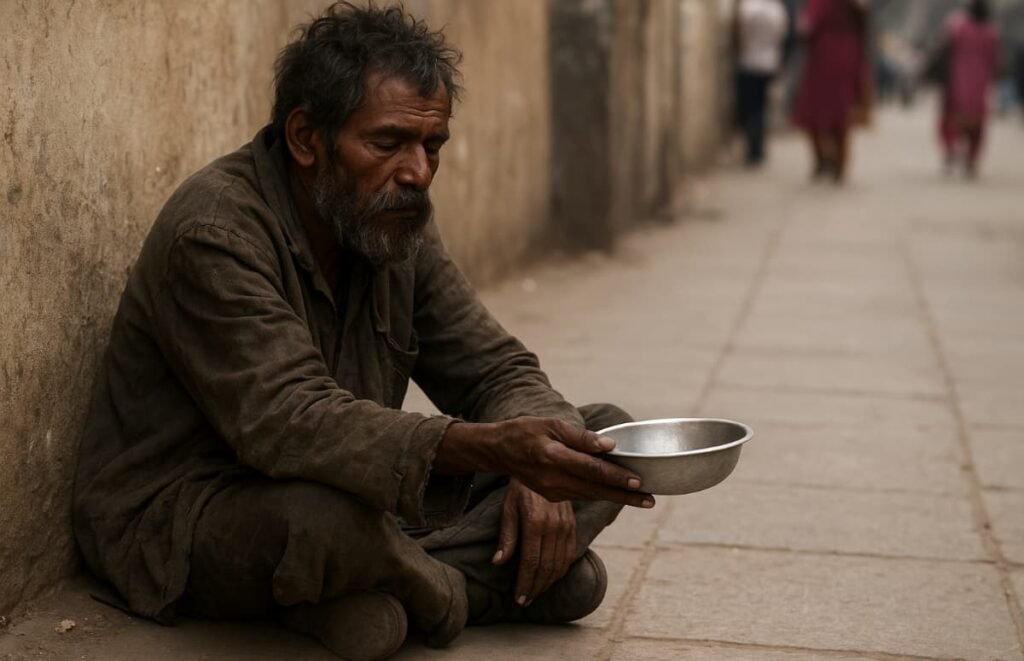Street Beggar Composition – Life, Struggles, and Solutions

Street Beggar Composition – Causes, Problems, and Remedies
Introduction
A street beggar is an individual who asks for money, food, or assistance from strangers in public places. In many cities, street beggars gather near markets, bus stands, and busy roads. They live a hard life, depending on the kindness of others to survive.
Appearance and Behavior
Most street beggars wear torn and dirty clothes. They often leave their hair uncombed, and their faces show signs of hardship. They usually carry a small bowl or tin to collect coins. Some beggars sit quietly, while others follow people, asking for help.
Daily Life
A street beggar’s day starts early, often in search of a busy spot where more people pass by. They may wait patiently or approach strangers to ask for food or money, eating whatever they manage to get during the day. At night, they usually sleep on pavements, in bus stations, or under bridges.
Causes of Begging
The main causes of begging are poverty, unemployment, physical disability, and lack of education. Some beggars are orphans with no family to support them. Natural disasters and war can also force people into a state of poverty, leading them to beg.
Social Problems
Street begging creates several social issues. It can affect the image of a city and make public places overcrowded. Sometimes, organized groups use beggars to earn money illegally. There are also cases where healthy people pretend to be beggars to avoid working.
Possible Solutions
To reduce begging, the government and society should work together. Providing free education, vocational training, and employment opportunities can help. Shelters for homeless people and medical care for the sick and disabled are also important.
Conclusion
Street beggars remind us of the economic inequality in our society. Instead of ignoring them, we should find ways to help them live a better life. With collective effort, we can reduce begging, and more people can live with dignity.
Street Beggar – FAQ
A street beggar asks strangers in public places for money, food, or help to survive.
Poverty, unemployment, disability, lack of education, and sometimes natural disasters or wars cause street begging.
We can reduce street begging by providing free education, job opportunities, shelters, and medical care to those in need.
Street beggars gather in markets, bus stations, railway stations, busy streets, and near religious places.
Street begging damages the image of a city, creates overcrowding, and sometimes connects to organized crime or fraud.
This really cleared things up for me.